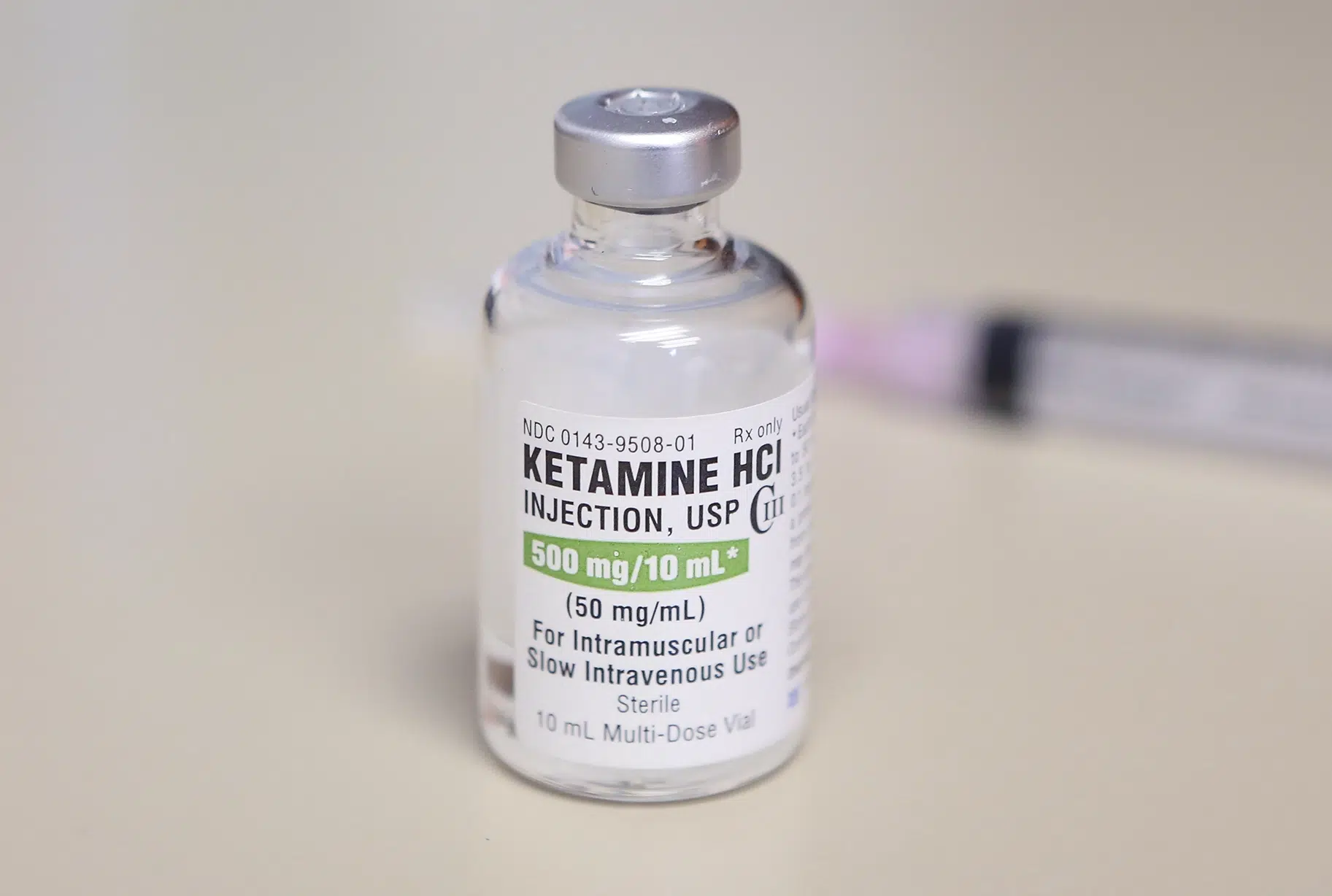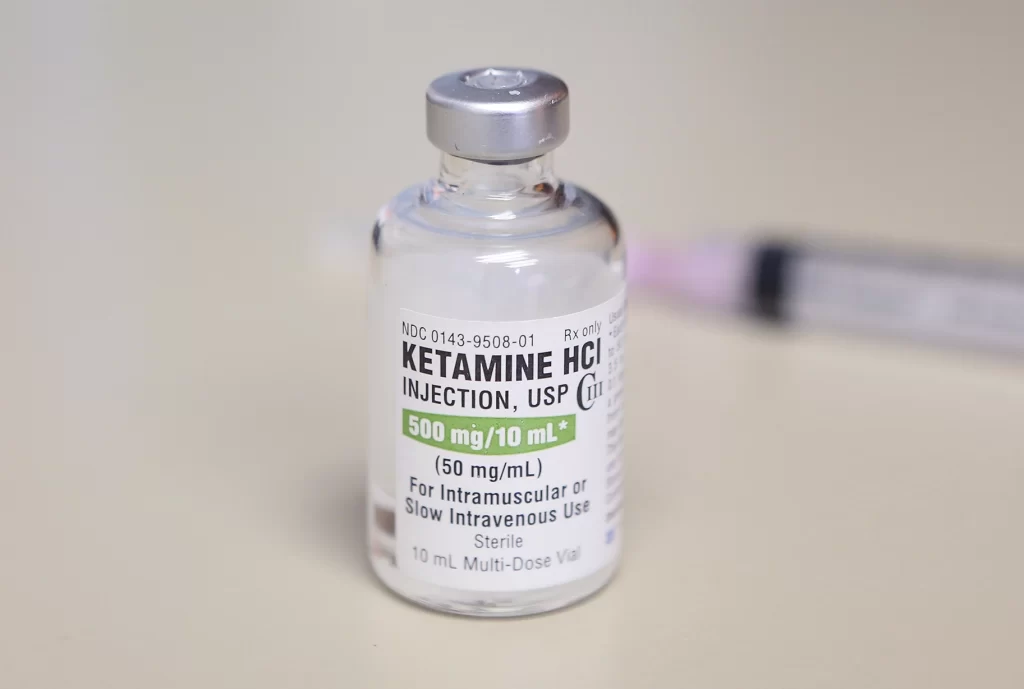We originally shared this as a newsletter! Get more, direct to your inbox.
On October 28th, 2023, actor Matthew Perry, best known for playing Chandler Bing in the sitcom Friends, was found unresponsive in the hot tub of his Los Angeles home.
The primary cause of death was later ruled to be acute effects of ketamine, a drug which has historically been used as an anesthetic, but which in more recent years has increasingly been used in mental health treatment.
Matthew had been receiving ketamine assisted psychotherapy to treat anxiety at the time of his passing.
This high-profile tragedy ignited the conversation around ketamine’s emerging therapeutic use for depression, PTSD, and potentially even neurodegenerative diseases like Alzheimer’s and Parkinson’s.

Matthew Perry as Chandler Bing on ‘Friends’
Why is this such a big deal?
More research is certainly needed, but ketamine’s potential use as an antidepressant could usher in a new revolution in mental health treatment.
We spoke to Dr. John Krystal, Professor of Psychiatry and Neuroscience at Yale University, about this for the latest episode of our podcast, ‘Your Brain On… Ketamine’. John told us:
“Since the 1950s, all the treatments for depression have been following the footsteps using the same mechanisms targeting norepinephrine and serotonin and dopamine.
“Ketamine is the first mechanistically novel antidepressant approved by the FDA in something like 50 years. It’s a profoundly different take on how you could target the biology of depression.
“If you do PET scans to look at the availability of the synaptic connections between nerve cells, we can actually show that, in depressed patients who have deficits in their synaptic density, 24 hours after a single dose of ketamine, they feel better in terms of their depression. The degree to which they improve is related to the increase in synaptic density that you see after a dose of ketamine.”
What’s next for ketamine?
Medical research has seen rapid acceleration in the digital age. Passive data collection from smart devices and new cognitive scanning technologies have massively increased what we know about the brain and how it reacts to certain drugs (including ketamine), and advanced computer models are helping us make sense of the information faster than ever.
In terms of innovations directly related to ketamine, there’s work being done to understand why its effects are often so temporary, and to make its antidepressant benefits last longer. Researchers are also striving for more clarity on how it promotes synaptic density, and looking for synergies between ketamine and other drugs.
On our podcast, we discuss all of this, plus:
- The neurochemical mechanisms of ketamine, and its interplay with depression
- What we know about the opportunities and pitfalls of using ketamine in mental health treatment
- The potential for ketamine use in reducing the impacts of neurodegenerative diseases like Alzheimer’s and Parkinson’s
- How technology and improvements in passive and active data collection are helping us better understand how ketamine affects cognition and neuroplasticity
- The history of ketamine’s use as an antidepressant
- How ketamine is actually administered, through various dosages and courses of treatment
Podcast Guests

Dr. John Krystal
Professor of Psychiatry, Neuroscience, and Psychology at Yale University

Dr. Gerard Sanacora
Professor of Psychiatry, Yale University; Director of the Yale Depression Research Program
Video of the Week: Ketamine, depression, and your brain (with Dr. John Krystal)
Dr. John Krystal, Professor of Psychiatry and Neuroscience, explains how and why ketamine is increasingly being used to treat depression.
Recipe of the Week: Roasted Butternut Squash Pasta with Creamy Green Sauce

A delicious plant-based butternut squash mac ‘n’ cheese recipe that’s great all year round, but especially for the holiday season!
It’s tasty, it’s vegan, and it serves 4–6.
Science of the Week: Ketamine and the neurobiology of depression: Toward next-generation rapid-acting antidepressant treatments
25 years after first highlighting the antidepressant effects of ketamine, John Krystal published a review which re-examined what we’ve learned in this area over the past two-and-a-half decades, and offered some ideas for how we can continue to push it forward.
“Ketamine has emerged as a transformative and mechanistically novel pharmacotherapy for depression. Its rapid onset of action, efficacy for treatment-resistant symptoms, and protection against relapse distinguish it from prior antidepressants.
“Its discovery emerged from a reconceptualization of the neurobiology of depression and, in turn, insights from the elaboration of its mechanisms of action inform studies of the pathophysiology of depression and related disorders.
“It has been 25 years since we first presented our ketamine findings in depression. Thus, it is timely for this review to consider what we have learned from studies of ketamine and to suggest future directions for the optimization of rapid-acting antidepressant treatment.
“As psychotherapists, psychiatrists engage in one of the most intense, invasive, and prolonged interventions in all of medicine. Ketamine, Esketamine, brexanolone, psychedelics, and MDMA are all intensive psychopharmacologic interventions that powerfully modulate consciousness, carry medical risks, but also offer paths to address the nihilism arising from the limited efficacy of standard treatment options.
“This is a very hopeful moment for psychiatric psychopharmacology and one that may profoundly impact the global burden of depression.”
This week’s brain teaser
This week’s puzzle is a crossword, with clues based on our podcast, Your Brain On… Ketamine!








